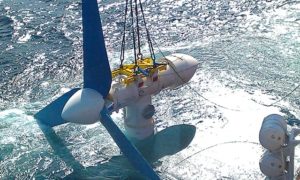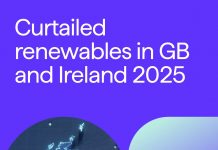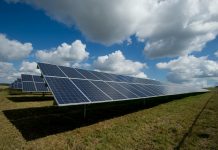 “2017 promises to be a year of technological and geographical diversity and advancement”, according to Tim Cornelius, CEO of Tidal turbine manufacturer and project developer Atlantis Resources.
“2017 promises to be a year of technological and geographical diversity and advancement”, according to Tim Cornelius, CEO of Tidal turbine manufacturer and project developer Atlantis Resources.
The firm has a potential project portfolio of 600MW in Scotland, and around 1GW globally. However, realising that kind of capacity will require significant resources.
Atlantis has been working to bring tidal power to commercial viability for over a decade. Its current live project is Maygen Phase 1A, a 6MW, four-turbine development using two different turbine designs, which, earlier this year, was accredited by Ofgem to receive 5 Renewables Obligation Certificates (Rocs) per MWh. The stated project cost is in the region of £50m, illustrating the kind of cost reductions tidal developers must make over the coming years in order to attract investors and reach scale.
However, the next phase of the Maygen project has secured a further €20m from the EU’s Horizon 2020 project as well as €17m from the NER300 project, which awarded funds to low carbon projects from the sale of 300m carbon credits. Posting financial results for the year to December 31, Cornelius said the company had been reassured all of its European funding to date was secure despite the vote to leave the EU.
“This preserves our opportunity to use this project to demonstrate the cost reducing innovations which are essential to allow tidal power to compete against longer established technologies,” he said.
Meanwhile, some significant investors and engineering firms have taken an interest in recent months. In March Atlantis signed a preferred supplier agreement with international renewable energy project developer SBS, for the supply of turbines, engineering services and equipment for a 150MW tidal-stream array located in Lombok, Indonesia.
In May 2017, the group signed a strategic partnership agreement with Hyundai Engineering and Construction for collaboration on the development of ocean power renewable projects globally, and in particular the development of tidal stream projects in South Korea.
The company also plans to pursue projects in France, where commercial seabed leasing rounds are planned in Normandy and Brittany.
It is also branching out into other marine engineering areas, eyeing involvement in the first iterations of floating turbines as well as subsea interconnectors, tidal barrage projects, tidal lagoons, floating offshore wind developments and pumped storage projects
The company posted a loss of £7.3m for the year to 31 December.
Related articles:
Engineers tell government to pay for tidal power
Government confirms support rates for offshore wind, wave and tidal power
Follow us at @EnergystMedia. For regular bulletins, sign up for the free newsletter.



